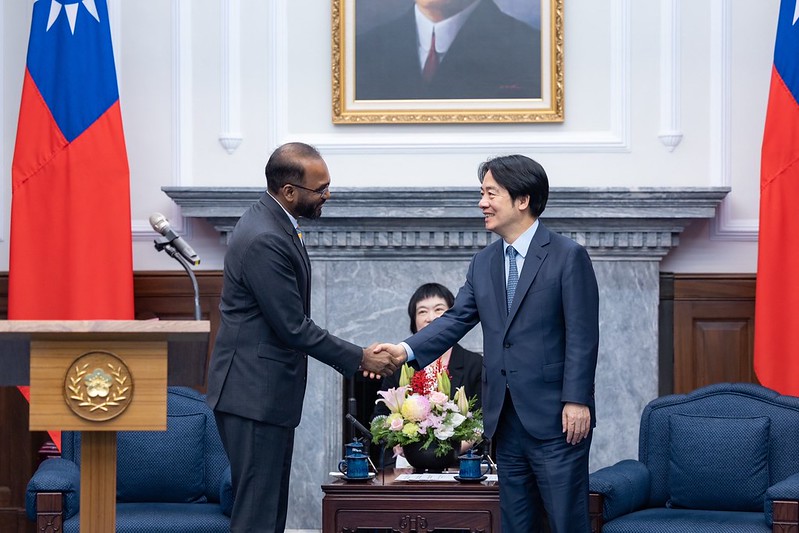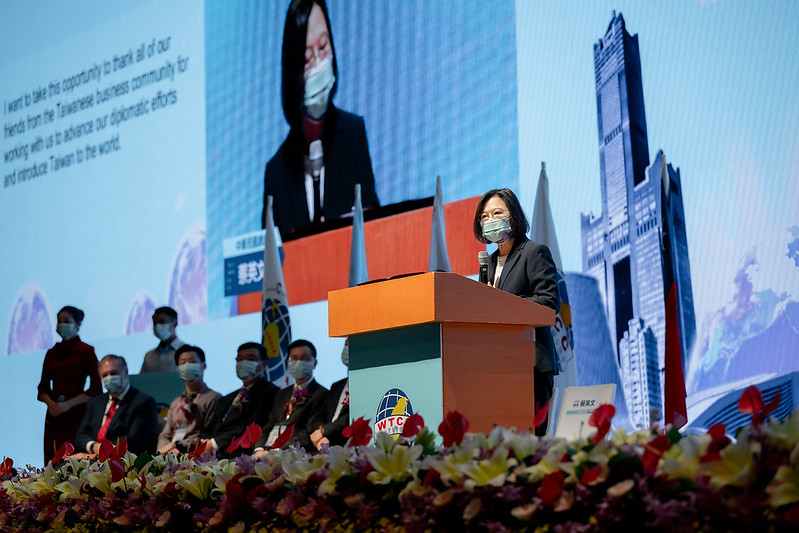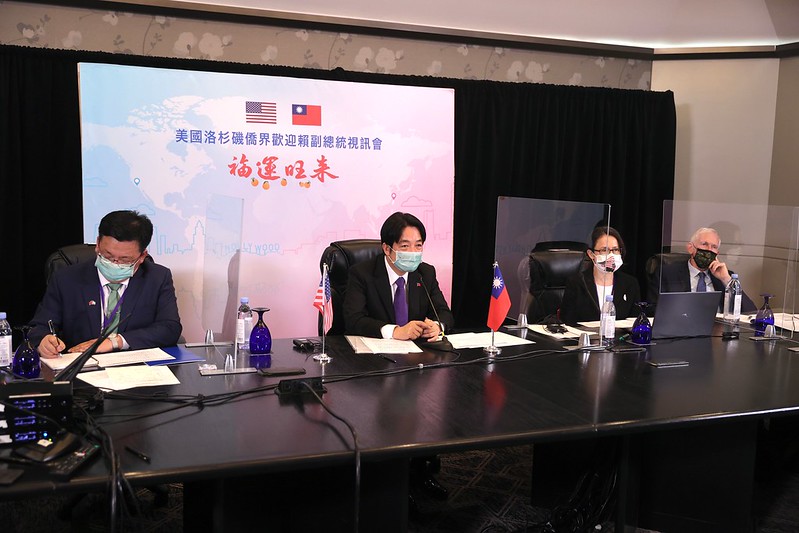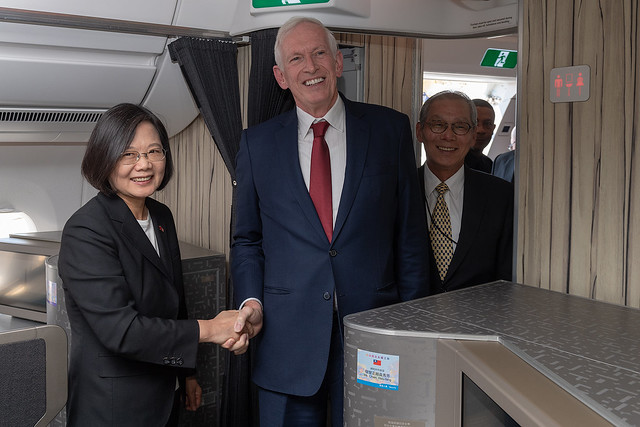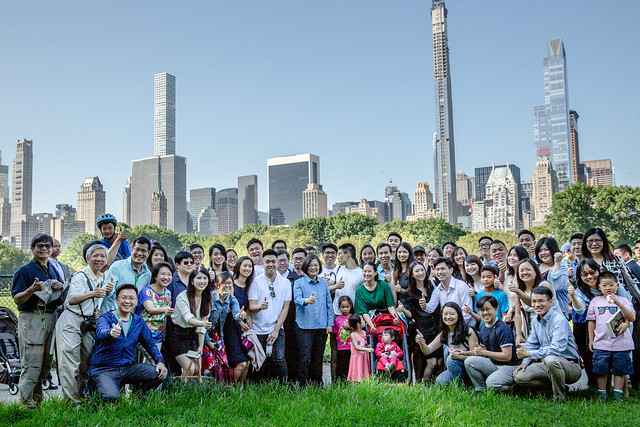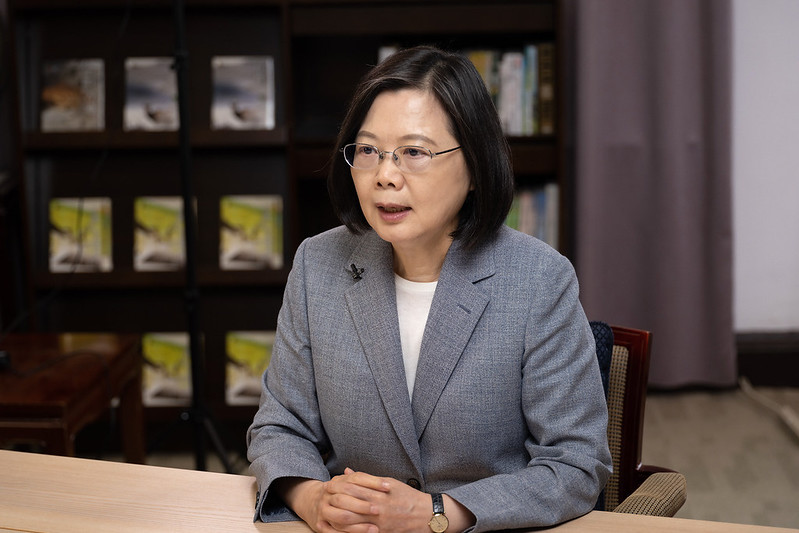News & activities
 News releases
News releases
On the morning of October 16, President Tsai Ing-wen delivered recorded remarks at an awards ceremony for outstanding young overseas compatriots. President Tsai praised the award winners for leading the way in people-to-people diplomacy, saying that they not only are very accomplished in their own professions, but they have also helped Taiwanese business organizations worldwide flourish. The president added that she looks forward to seeing even more outstanding young expatriates excelling in various fields, continuing to help Taiwan engage with the world, and making our country a truly global Taiwan.
The following is a translation of President Tsai's remarks:
First, I want to congratulate all the award winners for being selected as the ten outstanding young overseas compatriots. I also want to thank the Overseas Compatriot Culture and Education Foundation for organizing these awards over the past several years to commend overseas Taiwanese for their accomplishments while also sharing their experiences with even more people.
Each awardee has expertise in different areas and is highly influential.
Mr. Benjamin Chou (周浩恩) developed the first ever drive-thru voting system in Texas, USA. His innovation helped keep voters safe from COVID-19 while enabling citizens to exercise their right to vote. Chou is an outstanding example in both the political and public spheres.
In the field of law, Ms. Wendy Chang (張文綺) in Paraguay, Mr. Danny Chen (陳啟耕) in California, USA, and Mr. Chih-Po Albert Huang (黃志博) in South Africa have long used their legal expertise to provide expatriates with consultations and services. They have all made enormous contributions to advancing the rights and interests of overseas Taiwanese.
In the field of finance, Mr. Peter C.L. Lin (林敬倫) not only teaches in the Financial Mathematics program at Johns Hopkins University, he also founded a financial technology company that has facilitated innovation in Taiwanese industries.
There are five award winners in the field of commerce. Ms. Ray Jan (冉瑞宜) has spent many years in California dedicated to the development of small and medium-sized enterprises run by people of Asian descent, while also making considerable contributions to the women's rights movement. Mr. Hao-Wei Chen (陳浩維) has excelled in information security, and founded a Taiwan affinity group at Amazon to promote Taiwanese culture. Mr. Richard Tseng (曾遠喆) organized the Indonesia Taiwan Chambers of Commerce Junior Chapter to promote exchanges with young Indonesian businesspeople, helping to implement our New Southbound Policy. In France, Ms. Huang Kai-lin (黃凱琳) has worked to actively build bridges between Taiwanese businesses and other countries in her role as president of the World Taiwanese Chambers of Commerce Junior Chapter. And in Australia, Mr. Frank Chang (張戴麒) has served as chief officer of the Melbourne Taiwan Festival, which attracted tens of thousands of visitors, successfully enhancing Taiwan's image.
We are working to engage with the world, with these award winners leading the way for our people-to-people diplomacy. They not only are very accomplished in their own professions, they have also helped Taiwanese business organizations worldwide flourish. I want to thank everyone for their hard work and dedication.
I hope that in the future there will be even more outstanding young expatriates who can, like all of you, excel in their chosen fields while continuing to help Taiwan engage with the world and turn our country into a global Taiwan. I look forward to making more progress together. Thank you!
